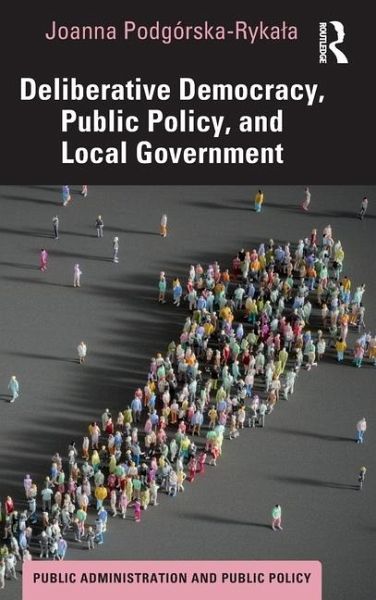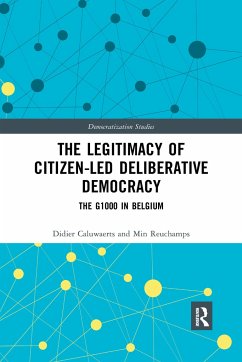
Deliberative Democracy, Public Policy, and Local Government
Versandkostenfrei!
Versandfertig in 6-10 Tagen
54,99 €
inkl. MwSt.
Weitere Ausgaben:

PAYBACK Punkte
27 °P sammeln!
This book examines deliberative democracy and its practical forms and applications in local government public policy. Author Joanna Podgórska-Rykala explores the topic of democracy, leaning in particular on the origins of its representative variant. Analyzing the elite dimension of the concept of representation, she considers what historical and political events have influenced the contemporary shape of democracy and its understanding. How were democratic ideals shaped, and why are we currently experiencing a democratic recession? Why is the debate that should be integral to the functioning o...
This book examines deliberative democracy and its practical forms and applications in local government public policy. Author Joanna Podgórska-Rykala explores the topic of democracy, leaning in particular on the origins of its representative variant. Analyzing the elite dimension of the concept of representation, she considers what historical and political events have influenced the contemporary shape of democracy and its understanding. How were democratic ideals shaped, and why are we currently experiencing a democratic recession? Why is the debate that should be integral to the functioning of collegiate bodies disappearing? Why aren't decisions based on evidence, and why don't decision-makers take into account expert opinions and stakeholder positions? Drawing on empirical research - interviews with city-level decision-makers - the author considers whether and how deliberative innovation can support the renewal of decision-making in representative institutions.
Deliberative Democracy, Public Policy, and Local Government will be of enormous interest to doctoral students and researchers as well as to practitioners of local government administration, civic leaders, representatives of nongovernmental organizations, and people interested in public affairs. It can also be used as an important supplement in courses on public administration, political science, international relations, law, economics, and related studies at both the undergraduate and the graduate level.
Deliberative Democracy, Public Policy, and Local Government will be of enormous interest to doctoral students and researchers as well as to practitioners of local government administration, civic leaders, representatives of nongovernmental organizations, and people interested in public affairs. It can also be used as an important supplement in courses on public administration, political science, international relations, law, economics, and related studies at both the undergraduate and the graduate level.














